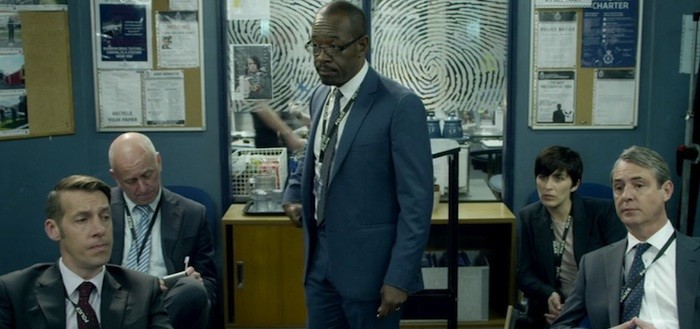Why you should be watching Line of Duty
Helen Archer | On 09, Sep 2015
Jed Mercurio specialises in shades of grey. Now credited with being Britain’s answer to the American style showrunner – a bonafide, bankable televisual auteur – his dramas tend to feature flawed characters navigating large, uncaring bureaucracies, where they are tested to their limits and generally fall short in what is at best an indifferent universe, at worst a genuinely malevolent one.
Drawing from his real life medical background, Mercurio began his TV career in 1994 with Cardiac Arrest. He followed that with the astounding Bodies, an altogether grittier affair in which medical procedures could go swiftly and irrevocably pear-shaped. Such was the programme’s impact that pregnant women were advised to avoid watching one episode. Critical, his most recent medical drama, follows Lennie James’ surgeon so closely that we observe every scalpel cut, hear every bone heave, as ribcages are forced apart; every artery and blood vessel, as lives are saved and lost in real-time.
But Line of Duty is his most outstanding work to date. Set within the police force, it delves into the murky world of bent coppers, who, in Mercurio’s eyes, are generally good coppers who have made some very bad decisions. Indeed, our heroes within the show’s anti-corruption unit, AC-12, have their own fair share of people on the take – the show is less cop versus robber than cop versus cop.
The first series introduced us to Detective Sergeant Steve Arnott (Martin Compston), fresh faced and straight as an arrow, recruited by Superintendent Ted Hastings (Adrian Dunbar), head of AC-12. Having grassed up his colleagues after a botched terrorism arrest, Hastings sees in Arnott someone who is unafraid to take on corruption in the force. Teamed up with DC Kate Fleming (Vicky McClure), they are set the task of investigating the much feted and extremely popular DCI Tony Gates (Lennie James), whose impressive reputation for closing cases has set alarm bells ringing. Arnott gradually finds his principles tested, as he realises that the good guy/bad guy divergence is more complicated and subtle than he thought.
While in the first season, the viewer colluded with Tony Gates, as we were shown his story, the second, which focuses on Detective Inspector Lindsay Denton (Keeley Hawes), is quite different. Denton is as unpopular as Gates was popular, and the second run kicks off with a severely botched attempt to re-house someone on witness protection. Suspicions are rampant throughout the force that Denton was complicit in the ambushed transfer. The viewer, along with AC-12, are in the dark and it becomes very much a whodunnit, as well as a whydunnit.
As Lindsay Denton, Keeley Hawes gives a career defining performance. A bit jowly, with dark circles under her eyes and a dodgy fringe, it’s a look that is generally described by critics as ‘brave’. Her character veers from lonely single cat lady to steely and determined careerist who can demonstrate flashes of angry violence; Denton doesn’t so much make friends and influence people as alienate everyone around her, generally by informing on her colleagues for any divergence from procedure and/or threatening to expose their secrets. But her motivations remain opaque until the very last.
Nobody is completely innocent in Mercurio’s dramas: all have secrets to be hidden and uncovered. With Line of Duty Season 4 on the way in 2017, now is the time to familiarise yourself with this ambiguous universe.
Line of Duty is available on BBC iPlayer until March 2022. Season 5 is available on Netflix UK, as part of an £9.99 monthly subscription.






















